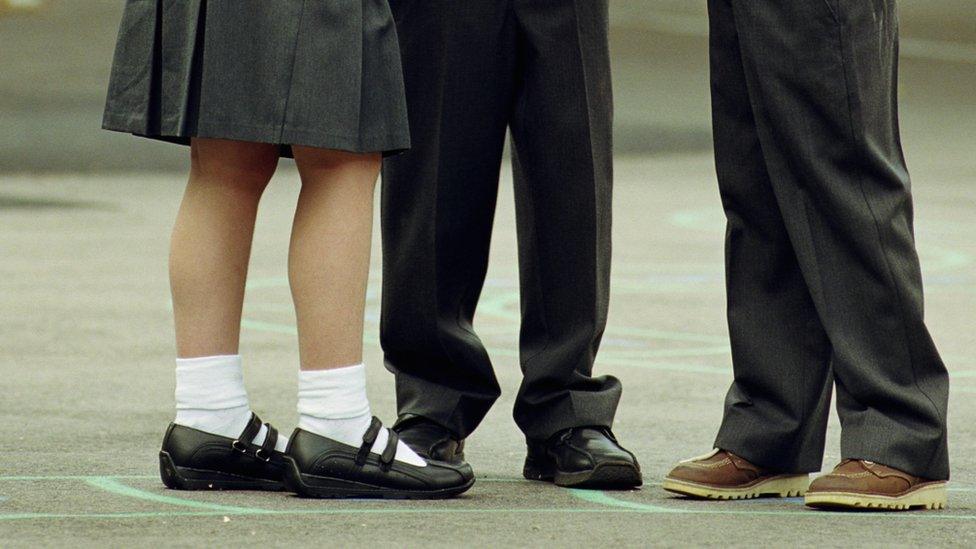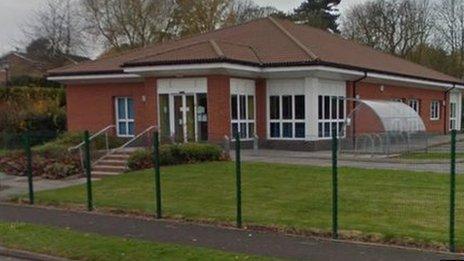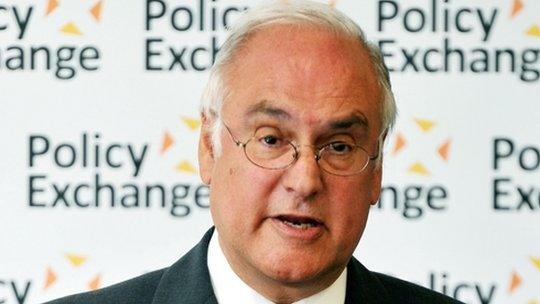Schools in Derby a serious concern, says Ofsted
- Published

School inspectors have raised serious concerns about educational standards in Derby.
Ofsted says schools are not progressing there because there are too few academy trusts in the area with experience in improving struggling schools.
It says the regional schools commissioners, who oversee standards in academies, are too slow to take action.
The government said it had made progress but the pace of improvement in some areas was not good enough.
The former chief inspector of schools, Sir Michael Wilshaw, often referred to the East Midlands as an area of concern.
Derby is in the bottom 10 local authority areas for educational attainment and some of its schools will have large proportions of pupils from deprived backgrounds.
It currently has 23 primary and secondary schools and academies requiring improvement or in special measures.
'Time lag'
But one head teacher involved in school improvement in the region, who did not want to be named, told the BBC standards in the city of Derby were an "utter calamity".
A spokesman for Ofsted said there was "a dearth of effective academy trusts to take over failing schools".
This is a concern because academisation is the government's key engine for school improvement.
The spokesman told the BBC Ofsted was concerned about the amount of time being taken to to "rebroker" schools.
Rebrokerage happens when an academy school is judged to be failing and the commissioner often has to look for another charitable trust - academy sponsor - to take over the school.
This step is usually taken as a last resort.
The local regional schools commissioner for Derby oversees a vast area of England's education system from the Midlands to the Humber.
Ofsted said slowness in finding new sponsorship agreements was leading to inequalities for some of the poorest children.
It also highlighted a lack of collaboration between good schools in the area and the rest.
'Remote and unaccountable'
The government has promised more money for the city by making it an Education Opportunity area, where employers are being linked with schools to raise standards.
But critics say projects have been delayed or stalled because of the general election.
One local Labour MP, Chris Williamson, says regional schools commissioners are remote and unaccountable.
He calls for the reintroduction of local education authorities.
"For the first time since 1990, Derby has seen a reduction in spending going into schools - so clearly we need a different approach, because the present system is broken. "
Under changes to the national funding formula for schools - yet to be agreed and introduced - Derby is one of very few metropolitan authorities receiving more money for 2018-19.
'Coldspots'
The Department for Education said school underperformance was one of the reasons it selected Derby as an Opportunity Area.
"This £72m programme is running in 12 social mobility 'coldspots' to create better opportunities for young people and develop solutions to raise educational outcomes.
"As part of this we've just named a new research school to provide resources for teachers in Derby to tackle social mobility in their classrooms, and we have given over £1m of growth funding to enable eight Multi Academy Trusts to expand their reach across Derby's academies," it said.
The concerns are being raised as new research from a cross-party commission reveals that geographical disparities are becoming an ever more important indicator of inequality in educational outcomes.
The Commission on Inequality in Education, chaired by Nick Clegg, found that the educational gap between poor and rich children was wider than it was a generation ago.
- Published9 August 2014

- Published22 February 2013
